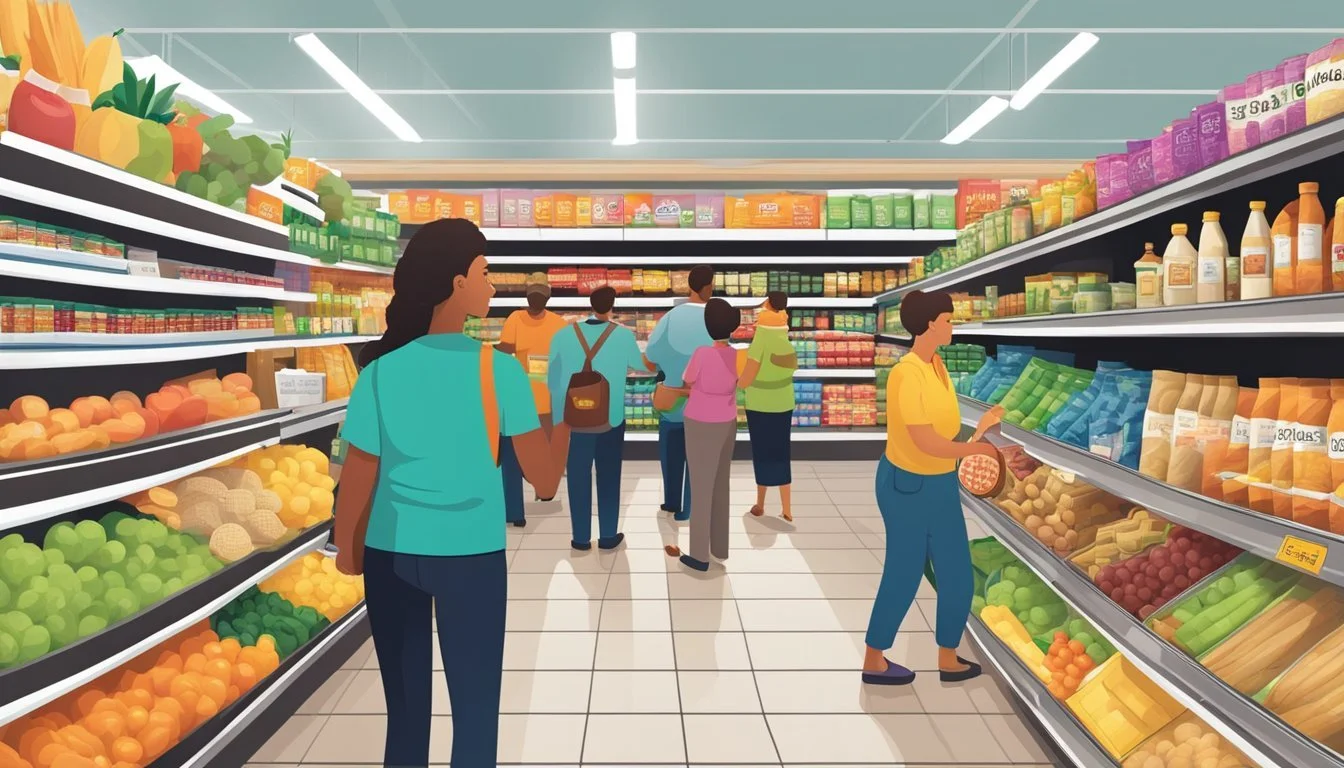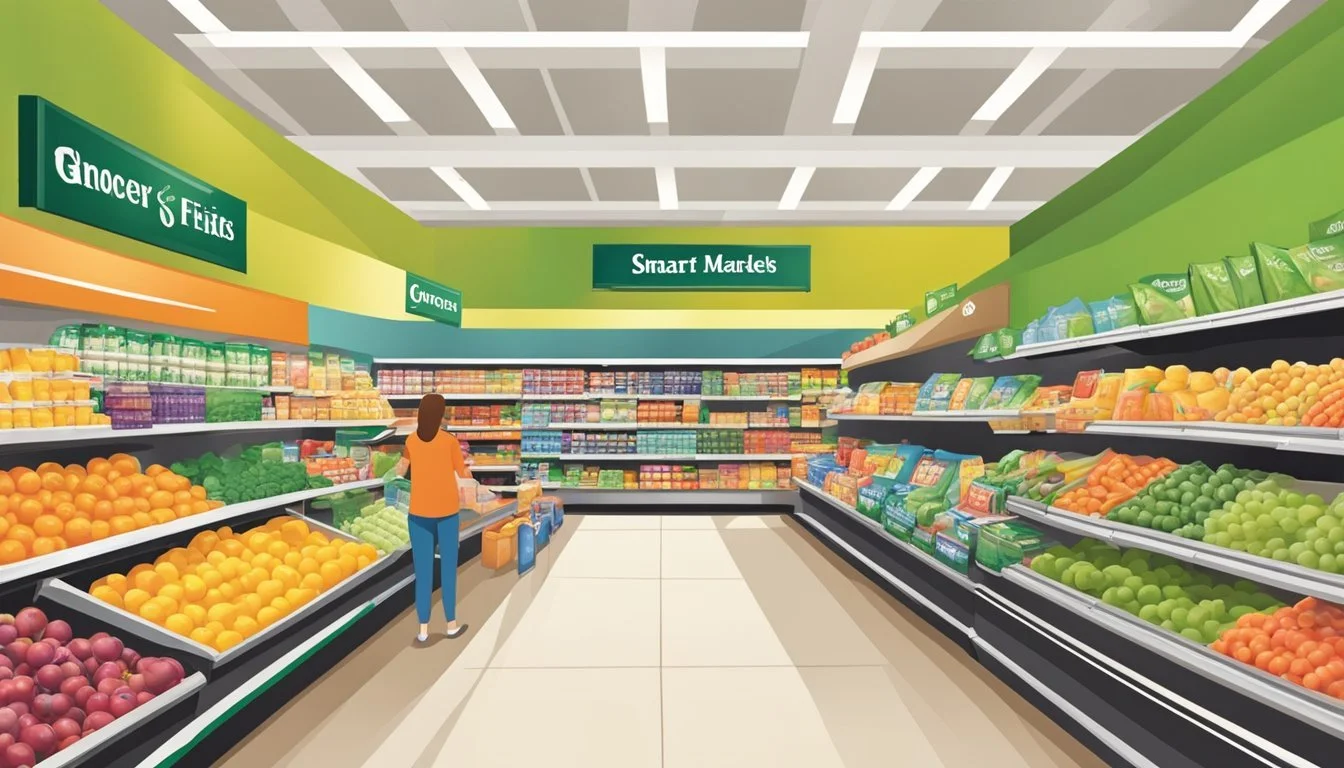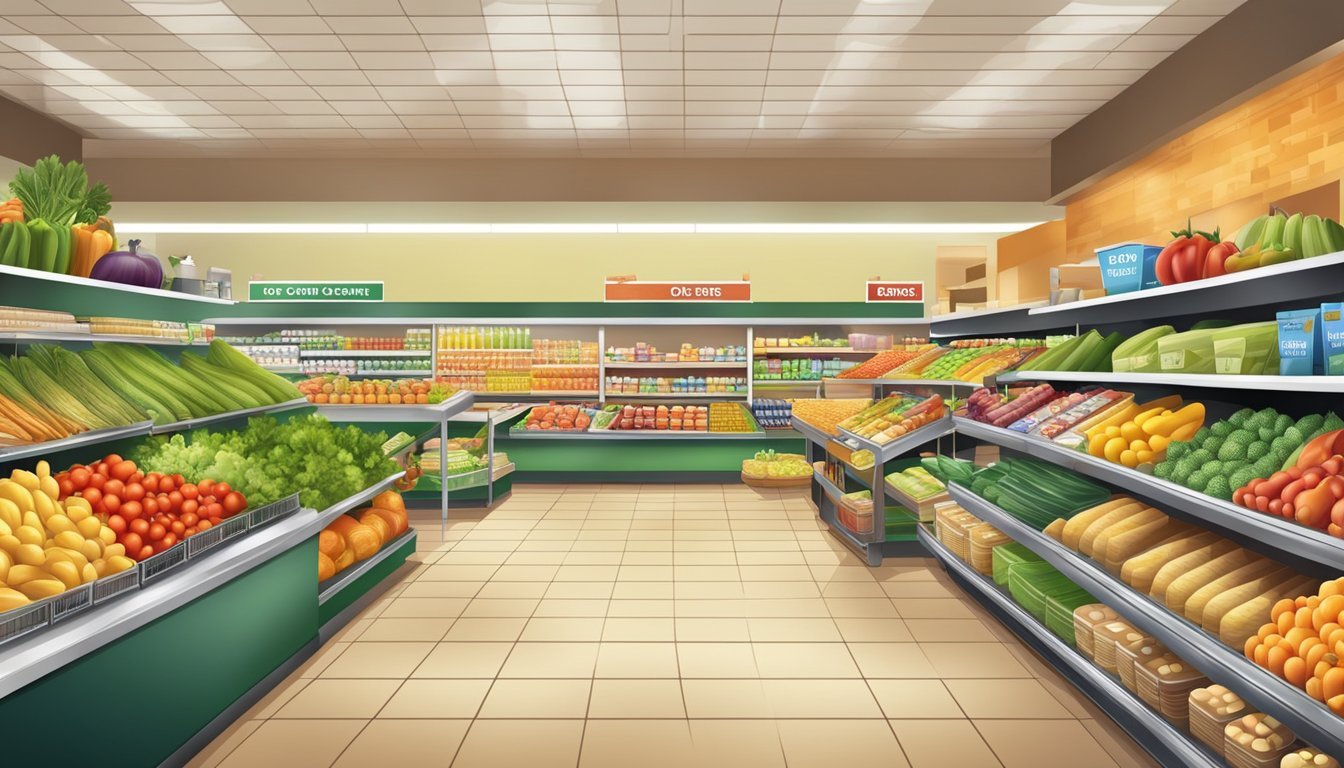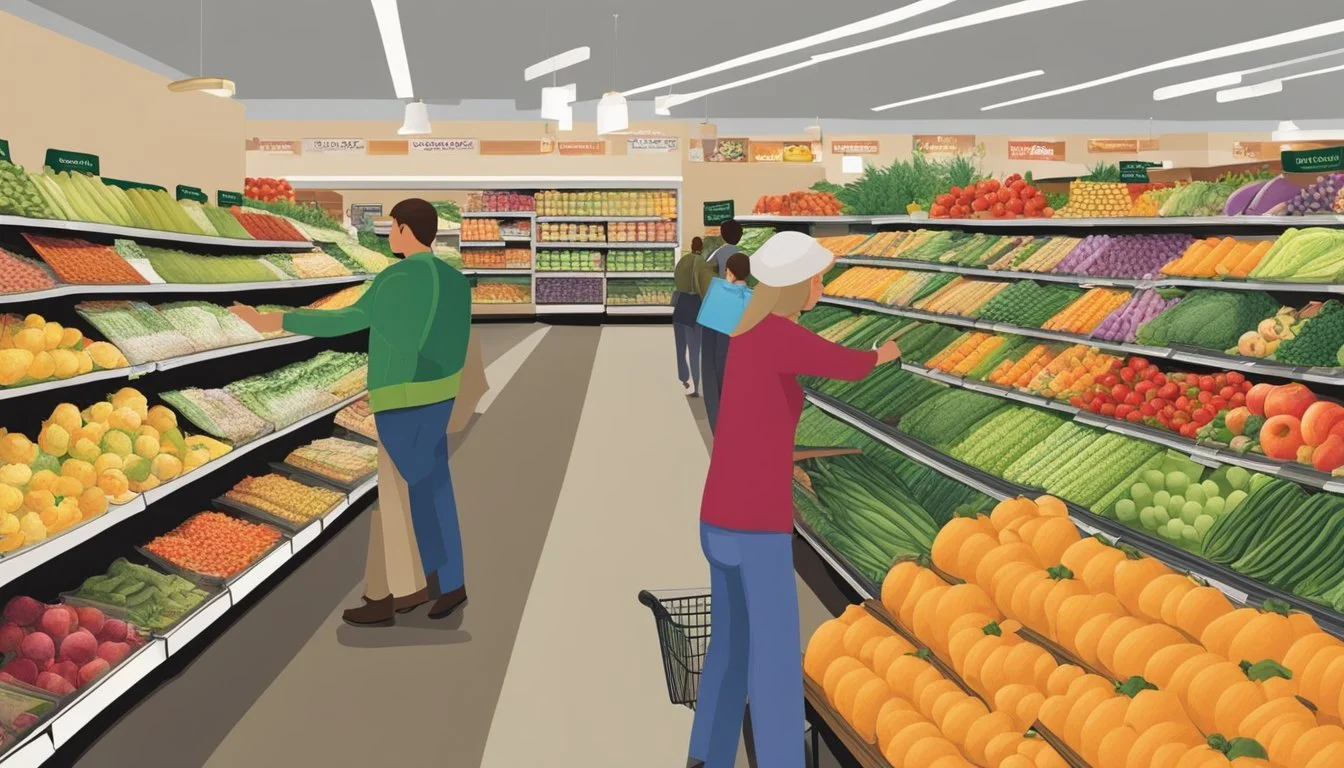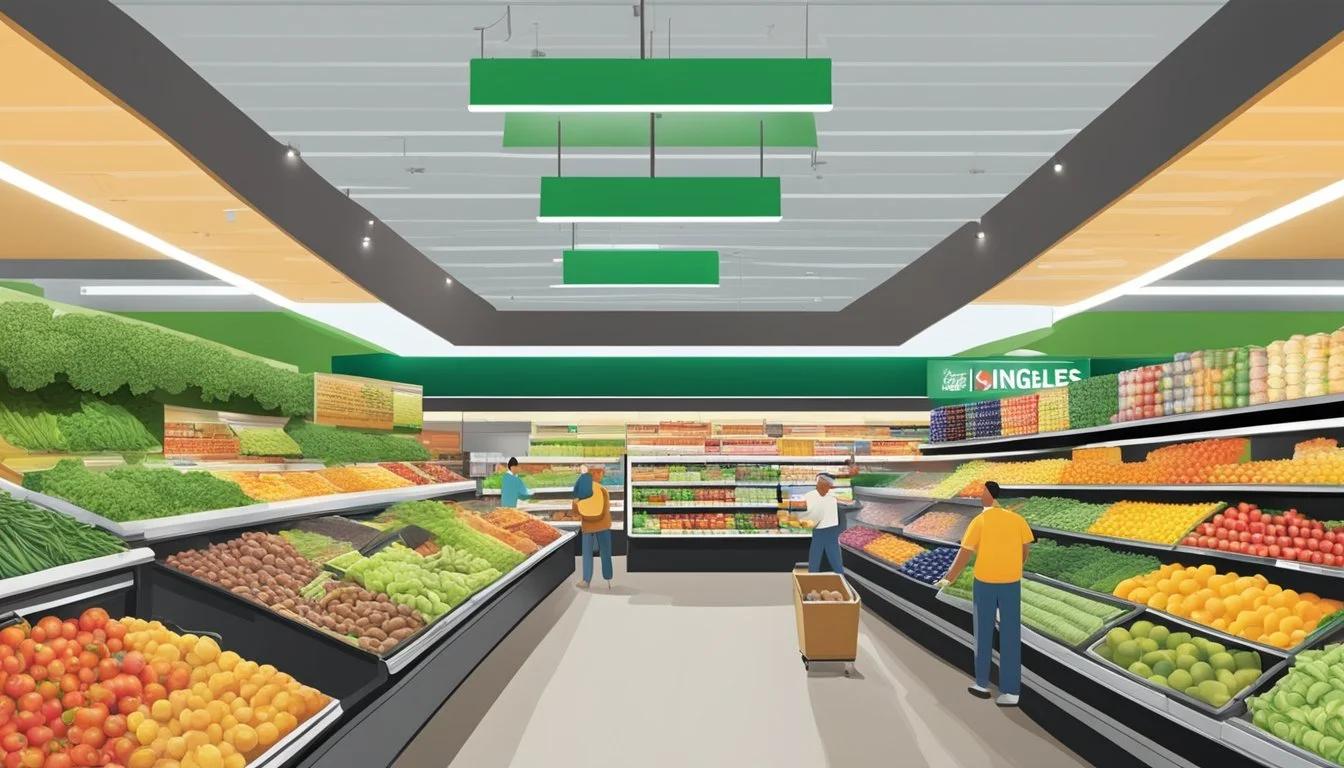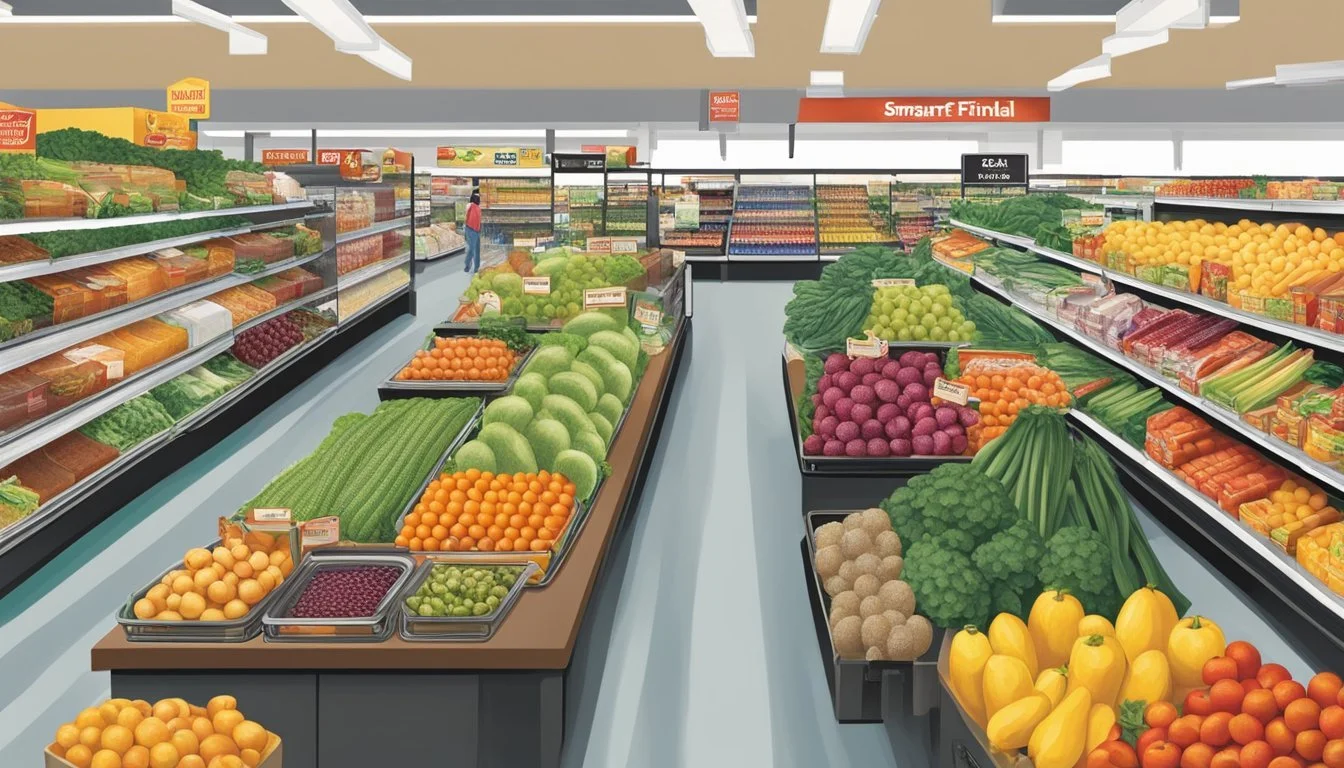Ingles Markets vs Smart & Final
A Comprehensive Comparison of Prices, Selection, and Service
Grocery shopping can be a significant expense for many households, making it essential to find stores that offer the best value. Ingles Markets and Smart & Final are two popular grocery chains that cater to different customer needs and preferences.
When comparing Ingles Markets and Smart & Final, Smart & Final generally offers lower prices on bulk items and basic groceries, while Ingles Markets tends to provide a wider selection of fresh produce and local products. Both stores have their strengths and cater to different shopping styles.
Smart & Final positions itself as a warehouse-style store without membership fees, appealing to budget-conscious shoppers and small business owners. Ingles Markets, on the other hand, focuses on a more traditional grocery shopping experience with an emphasis on fresh food and regional products. The choice between the two ultimately depends on individual shopping priorities and preferences.
Company Backgrounds
Ingles Markets and Smart & Final are two distinct grocery store chains with unique histories and business models. Both companies have grown over decades to become significant players in their respective markets.
History of Ingles Markets
Ingles Markets was founded in 1963 by Robert P. Ingle in Asheville, North Carolina. The company started as a single store and expanded throughout the Southeastern United States.
Ingles operates as a regional grocery store chain, focusing on the Appalachian region. The company went public in 1987 and is listed on NASDAQ under the ticker symbol IMKTA.
Robert P. Ingle's vision was to provide high-quality products at affordable prices. The company remains family-controlled, with Robert P. Ingle II serving as CEO and Chairman.
Profile of Smart & Final
Smart & Final traces its roots back to 1871 when Hellman-Haas Grocery was founded in Los Angeles. The company evolved through mergers and acquisitions over the years.
Smart & Final operates warehouse-style food and supply stores, catering to both retail and business customers. The chain has over 250 locations across the Western United States.
In 2019, Smart & Final reported donations of $1.8 million to various community initiatives. The company focuses on education, hunger relief, youth development, and disaster relief.
Smart & Final's business model combines elements of a traditional grocery store with those of a warehouse club, offering bulk items without membership fees.
Store Offerings
Ingles Markets and Smart & Final offer diverse product selections to cater to different customer needs. Both chains focus on providing quality groceries, fresh produce, and household essentials, but their specific offerings and specialties vary.
Product Variety and Availability
Ingles Markets boasts a wide range of products, with over 30,000 items in most stores. They emphasize fresh produce, meats, and dairy. Smart & Final, on the other hand, offers a unique mix of household and business products. Their stores typically stock around 20,000 items, including bulk quantities suitable for both families and small businesses.
Ingles Markets excels in regional and local product offerings, often featuring items from nearby farms and producers. Smart & Final focuses on providing staple items and bulk purchases at competitive prices.
Private Label Products
Both chains have developed their own private label brands to offer customers quality products at lower prices. Ingles Markets' "Laura Lynn" brand covers a wide range of grocery items, from canned goods to dairy products. Smart & Final's "First Street" brand encompasses over 2,000 products across various categories.
These private label offerings allow both stores to compete on price while maintaining quality standards. Customers often find these store brands to be comparable to national brands in terms of taste and quality.
Organic and Health-Focused Options
Ingles Markets has significantly expanded its organic and health-focused offerings in recent years. Their stores feature dedicated sections for organic produce, gluten-free products, and specialty health foods. Many Ingles locations also include natural food departments with a wide selection of vitamins and supplements.
Smart & Final has also increased its organic options, particularly in produce and dairy. However, their focus on organic and health-focused products is not as extensive as Ingles Markets. Smart & Final tends to offer a more limited selection of these items compared to traditional grocery chains.
Prepared Foods and Deli
Ingles Markets excels in their prepared foods and deli offerings. Many stores feature full-service delis with made-to-order sandwiches, hot food bars, and rotisserie chickens. Some locations even include in-store restaurants or cafes.
Smart & Final's prepared food options are more limited. They typically offer basic deli items like sliced meats and cheeses, as well as pre-packaged sandwiches and salads. Their focus is more on providing ingredients for food service businesses rather than ready-to-eat meals for individual consumers.
Pricing and Value for Money
Ingles Markets and Smart & Final offer different pricing strategies and value propositions for shoppers. Both aim to provide competitive prices, but their approaches vary in terms of everyday costs, promotional offers, and bulk purchase options.
Comparison of Everyday Prices
Ingles Markets generally maintains mid-range prices on most items, competing with larger chains like Kroger and Publix. Their produce section often features competitive rates, with weekly specials on fresh fruits and vegetables.
Smart & Final, known for catering to both households and businesses, typically offers lower prices on many items compared to traditional supermarkets. Their larger pack sizes contribute to cost savings, especially on pantry staples and household goods.
For a typical grocery basket, Smart & Final tends to be slightly cheaper than Ingles Markets. However, prices can fluctuate based on location and seasonal factors.
Discounts and Savings Programs
Ingles Markets provides an Ingles Advantage Card, offering personalized discounts and fuel savings. Cardholders receive digital coupons and earn points on purchases, which can be redeemed for groceries or gas.
Smart & Final runs weekly specials and offers a mobile app with digital coupons. They don't have a loyalty program comparable to Ingles, but their everyday low prices often compensate for this.
Both stores regularly feature BOGOs (Buy One Get One) deals, particularly on store brand items. Ingles tends to have more manufacturer coupons available, while Smart & Final focuses on volume discounts.
Membership and Bulk Purchase Options
Smart & Final excels in bulk purchase options, offering larger package sizes at discounted rates. This approach appeals to families, small businesses, and organizations planning events.
While not a membership-based store like Costco, Smart & Final's bulk offerings often rival warehouse club prices without requiring a membership fee.
Ingles Markets doesn't offer a formal membership program or extensive bulk options. However, they do provide case discounts on certain items upon request, catering to customers looking to buy in larger quantities.
For shoppers seeking consistent bulk savings, Smart & Final presents a clear advantage. Ingles Markets' strength lies in its mix of competitive pricing and loyalty program benefits for regular shoppers.
Quality and Freshness
Ingles Markets and Smart & Final both prioritize quality and freshness in their offerings. Each store has its own standards and practices for sourcing, handling, and presenting products to customers.
Fresh Produce and Meat Standards
Ingles Markets emphasizes locally sourced produce when possible, partnering with regional farmers to deliver fresh fruits and vegetables. Their meat department offers a selection of USDA Choice beef and antibiotic-free chicken. Smart & Final focuses on bulk quantities, providing both individual shoppers and businesses with fresh produce options. Their meat section features value packs and restaurant-quality cuts.
Both stores implement rigorous quality control measures. Ingles employs produce specialists to inspect incoming shipments, while Smart & Final uses a fast turnover system to ensure freshness. Neither store permits the sale of products past their prime, with daily inspections and rotations.
Bakery and Fresh Goods
Ingles Markets boasts in-store bakeries, producing fresh bread, pastries, and cakes daily. They offer a mix of traditional and artisanal options, including sugar-free and whole grain varieties. Smart & Final's bakery section, while more limited, provides essentials like sandwich breads and rolls, often in larger quantities.
Ingles places emphasis on customization, allowing customers to order specialty cakes and pastries. Smart & Final caters more to commercial needs, offering par-baked goods that restaurants and cafes can finish on-site.
Supply Chain and Sourcing
Ingles Markets maintains strong relationships with local and regional suppliers, particularly for produce and dairy. This approach supports local economies and can result in fresher products with shorter transit times. They also work with national distributors to ensure a wide product range.
Smart & Final leverages its position as a warehouse-style store to source products in bulk from larger suppliers. This model allows them to offer competitive pricing on many items. Both stores have implemented traceability systems to track products from farm to shelf, enhancing food safety and quality control.
Shopping Experience
Ingles Markets and Smart & Final offer distinct shopping experiences that cater to different customer needs. Their store layouts, customer service approaches, and maintenance standards shape how shoppers interact with each retailer.
Store Layout and Design
Ingles Markets typically features a traditional supermarket layout with clearly defined departments. Produce sections greet customers near the entrance, followed by bakery and deli counters. Wide aisles accommodate shopping carts comfortably.
Smart & Final adopts a warehouse-style design with a focus on bulk items. Tall shelving units maximize vertical space. The layout emphasizes efficiency for quick shopping trips. Some locations include separate entrances for business customers.
Both stores provide signage to help customers navigate departments. Ingles tends to have more elaborate displays and decorative elements. Smart & Final keeps things simple with a no-frills approach.
Customer Service Comparison
Ingles Markets prides itself on personalized service. Staff members are often available to assist with product location and queries. Many locations offer carryout service to help customers with their groceries.
Smart & Final takes a more self-service oriented approach. Fewer employees are typically on the sales floor. Checkout lines may move quickly due to the focus on efficiency.
Both chains provide customer service desks for returns and special requests. Ingles generally offers more specialized services like custom cake orders or meat cutting.
Cleanliness and Maintenance
Ingles Markets maintains a clean, well-lit environment. Regular floor cleaning and restocking keep the store tidy throughout the day. Produce sections receive frequent attention to remove wilted items.
Smart & Final's warehouse-style stores can appear less polished. The focus is on functionality rather than aesthetics. Spills are promptly addressed for safety reasons.
Both chains adhere to health and safety standards. Ingles puts more emphasis on creating an inviting atmosphere. Smart & Final prioritizes keeping high-traffic areas clean and functional.
Proximity to shoppers' homes often influences store choice. Customers willing to travel may find Smart & Final's bulk offerings worth the trip. Those valuing convenience might prefer a nearby Ingles for regular grocery runs.
Convenience Factors
Ingles Markets and Smart & Final offer various convenience features to enhance the shopping experience. Both chains aim to provide accessible locations, digital services, and additional amenities to meet customer needs.
Location and Accessibility
Ingles Markets operates primarily in the southeastern United States, with a strong presence in rural and suburban areas. The chain focuses on serving local communities, often positioning stores in convenient locations near residential neighborhoods. Smart & Final has a wider geographic footprint, with stores across the western United States and Mexico. Their locations tend to be in more urban and suburban areas, often near major roads or shopping centers.
Ingles typically offers ample parking and spacious store layouts. Smart & Final stores are generally smaller, catering to both household shoppers and small businesses. This compact format can make them easier to navigate quickly.
Online Shopping and Delivery Services
Both chains have embraced digital shopping options. Ingles Markets provides online ordering through their website and mobile app. Customers can choose between curbside pickup and home delivery in select areas. Smart & Final also offers online shopping with both pickup and delivery options. Their interface is designed to accommodate both individual shoppers and business customers.
Ingles' online platform integrates with their loyalty program, allowing customers to easily access personalized deals. Smart & Final's system is geared towards efficiency, with features that cater to bulk purchases and frequent orders.
Additional In-Store Services
Ingles Markets often includes full-service pharmacies in their stores, providing prescription services and immunizations. Many locations also feature fuel centers, allowing customers to combine grocery shopping with refueling their vehicles. Some Ingles stores have in-store banks and Starbucks cafes.
Smart & Final focuses on a more streamlined shopping experience. While they may not offer as many additional services, their stores often include specialized sections for food service professionals and party planners. Some locations provide bulk-bin options for dry goods, allowing customers to purchase exactly the amount they need.
Consumer Perception and Brand Reputation
Consumer perception and brand reputation play crucial roles in the success of grocery stores. These factors influence customer loyalty, purchasing decisions, and overall market position.
Customer Loyalty and Trust
Ingles Markets and Smart & Final strive to build strong customer relationships. Ingles focuses on providing a local, community-oriented shopping experience. This approach resonates with many customers who value personalized service.
Smart & Final targets both households and businesses with its bulk offerings. This unique positioning helps create trust among shoppers looking for value. Both chains emphasize product quality and freshness to maintain customer confidence.
Consumer Reports surveys show that taste and flavor are top priorities for Americans when choosing groceries. Stores that consistently deliver on these aspects tend to earn higher customer loyalty.
Online Reviews and Ratings
Digital platforms have become essential for shaping consumer perceptions. Ingles Markets and Smart & Final actively monitor and respond to online reviews. This engagement demonstrates their commitment to customer satisfaction.
Ratings on popular review sites can significantly impact a store's reputation. Smart & Final has received mixed feedback, with some praising its bulk options and others critiquing product variety. Ingles generally receives positive reviews for its customer service and local product selection.
Social media presence also influences perception. Both chains use these platforms to showcase promotions, highlight community involvement, and address customer concerns promptly.
Industry Awards and Recognition
Recognition from industry experts can boost a grocery store's reputation. Ingles Markets has received accolades for its sustainability efforts and employee satisfaction. These awards help reinforce its image as a responsible, community-focused retailer.
Smart & Final has been recognized for its innovative business model, catering to both retail and foodservice customers. Such acknowledgments can enhance consumer trust in the brand's expertise.
Both chains have implemented animal welfare policies in response to growing consumer concerns. For example, they've committed to sourcing cage-free eggs and working with suppliers like Tyson to ensure ethical practices.
Environmental and Ethical Practices
Ingles Markets and Smart & Final both implement sustainability initiatives and animal welfare policies. Their efforts aim to reduce environmental impact and ensure ethical treatment of animals in their supply chains.
Sustainability Efforts
Ingles Markets focuses on energy efficiency in its stores. The company has installed LED lighting and upgraded refrigeration systems to decrease electricity usage. Ingles also operates a solar farm to generate renewable energy for some locations.
Smart & Final emphasizes waste reduction. The chain has implemented recycling programs for cardboard, plastics, and food waste in many stores. Smart & Final offers reusable shopping bags and encourages customers to bring their own containers for bulk items.
Both retailers have increased their selection of organic produce and private label products with eco-friendly packaging. However, neither company has made major commitments to eliminating single-use plastics storewide.
Animal Welfare Commitments
Ingles Markets sources some cage-free eggs and has pledged to transition to 100% cage-free eggs by 2025. The company offers organic and grass-fed meat options but has not made specific welfare commitments for all animal products.
Smart & Final has expanded its selection of plant-based alternatives to meat and dairy. The chain carries some cage-free egg options but has not announced plans to go fully cage-free. Smart & Final's private label meats do not have specific animal welfare certifications.
Neither retailer has signed onto major farm animal welfare initiatives like the Better Chicken Commitment. Both companies could improve transparency around their animal welfare policies and sourcing practices.
Final Thoughts on Grocery Store Comparison
Ingles Markets and Smart & Final each offer unique advantages to shoppers. Ingles Markets tends to excel in fresh produce and regional products, catering to local tastes in the southeastern United States.
Smart & Final, on the other hand, provides a broader selection of bulk items and restaurant-quality goods. This makes it appealing to both households and small business owners.
Price-conscious consumers may find better deals at Smart & Final, especially on larger quantities. However, Ingles Markets often runs competitive promotions on everyday essentials.
Both supermarket chains prioritize customer service, though Ingles Markets typically offers a more personalized shopping experience in its smaller-format stores.
Product quality is generally comparable between the two retailers. Smart & Final's First Street private label and Ingles' Laura Lynn brand both offer good value alternatives to national brands.
Store locations play a crucial role in choosing between these chains. Ingles Markets has a strong presence in rural and suburban areas of the Southeast, while Smart & Final focuses on urban and suburban locations in the Western U.S.
Ultimately, the choice between Ingles Markets and Smart & Final depends on individual shopping needs, preferences, and geographic location. Both chains continue to innovate and adapt to changing consumer demands in the competitive supermarket landscape.

